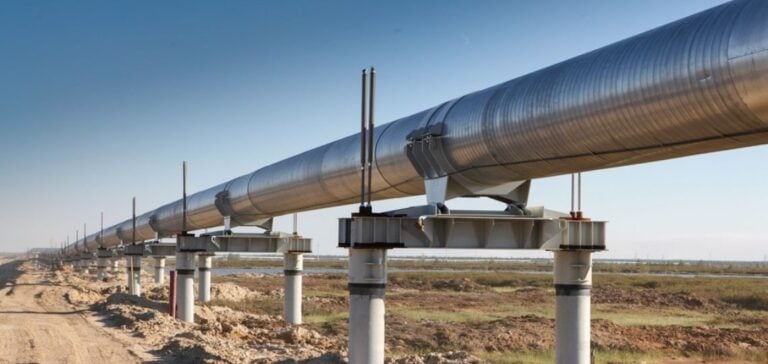Ukraine’s recent decision to impose sanctions on Lukoil has disrupted oil flows to Slovakia and Hungary. Both countries, dependent on Russian oil, must now find alternative solutions to maintain their energy supplies. This situation highlights the vulnerability of oil supplies to Europe via the Druzhba pipeline, built during the Soviet era, which remains one of the last major delivery routes for Russian oil to the continent.
Impact of Ukrainian Sanctions
Slovakia and Hungary, which have historically received a significant proportion of their oil via the Druzhba pipeline, are now facing difficulties following the implementation of Ukrainian sanctions against Lukoil, Russia’s second largest oil producer. The Slovak authorities have confirmed that Lukoil deliveries have ceased, but other Russian suppliers continue to supply the country. The Slovakian Ministry of the Economy stated that overall Russian oil deliveries were not completely interrupted, but that the absence of Lukoil required logistical adjustments.
Reactions and Alternative Solutions
In Hungary, Foreign Minister Peter Szijjarto said that although gas flows from Russia were continuing normally via the TurkStream pipeline, Lukoil’s oil transit through Ukraine had been interrupted. Hungary is exploring legal and logistical solutions to restore these flows, underlining the strategic importance of Russian oil for national energy security.
The main refineries in both countries, including MOL in Hungary and Slovnaft in Slovakia, depend to a large extent on oil transported via Druzhba. MOL, which owns refineries in Hungary and Slovakia, is planning major investments to diversify its sources of supply, including importing oil by sea from the Croatian port of Omisalj for its Hungarian refinery.
Economic consequences and future strategies
The cessation of Lukoil supplies complicates refinery operations, especially for Slovnaft, which has fewer alternative options due to its landlocked position. On the other hand, MOL’s Duna refinery in Hungary can obtain its oil supplies by other sea routes.
The Ukrainian sanctions against Lukoil, in force since June, demonstrate the complexity of energy relations in Eastern Europe and the impact of geopolitical tensions on energy supplies. Diversification of supply sources and routes is becoming increasingly crucial for European countries in order to guarantee their long-term energy security.
Slovakia and Hungary continue to receive oil from other Russian companies, but the cessation of Lukoil deliveries accentuates the need for long-term solutions to secure energy supplies.





















